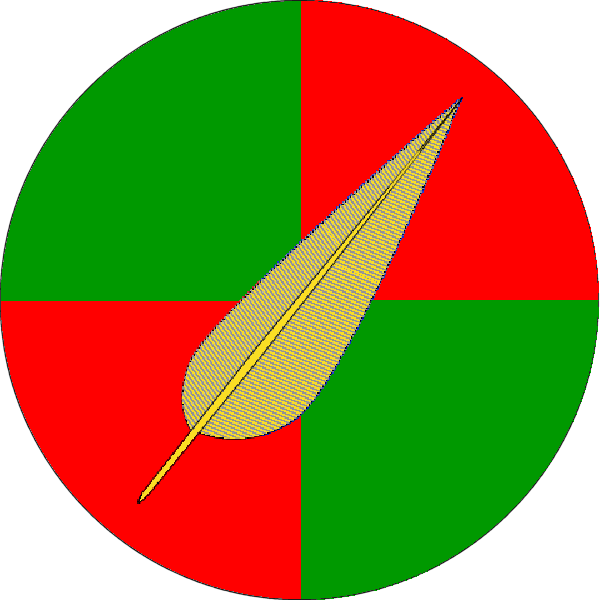Law:54RZ28 The Non-Hereditary Monarchy Amendment: Difference between revisions
Jump to navigation
Jump to search
(Created page with "{{LawZiuStatus |status= {{LawStatusActive}}, or {{LawStatusPending}}, or {{LawStatusFailed}}, or {{LawStatusEphemeral}} For more, see Category:Chancery_templates |sponsor=Ia...") |
mNo edit summary |
||
| (3 intermediate revisions by the same user not shown) | |||
| Line 1: | Line 1: | ||
{{LawZiuStatus | {{LawZiuStatus | ||
|status= | |number=54RZ28 | ||
|vetoattempt=54RZ26 | |||
|status= Org | |||
|sponsor=[[Ian Plätschisch]] | |sponsor=[[Ian Plätschisch]] | ||
|ziu= 54th | |ziu= 54th | ||
|clark= 6th June 2020 | |clark= 6th June {{year|2020}} | ||
|cosa= {{passed}} | |cosa= {{passed}} | ||
|cyes= 150 | |cyes= 150 | ||
|cno= 12 | |cno= 12 | ||
|cabs= 5 | |cabs= 5 | ||
|senats= {{passed}} | |senats= {{passed}} | ||
|syes= 5 | |syes= 5 | ||
|sno= 3 | |sno= 3 | ||
|sabs= 0 | |sabs= 0 | ||
|referendum= {{passed}} | |referendum= {{passed}} | ||
|ryes= | |ryes= 65 | ||
|rno= | |rno= 25 | ||
|rabs= | |rabs= 15 | ||
}} | }} | ||
WHEREAS Interest in Talossa is not hereditary, and | WHEREAS Interest in Talossa is not hereditary, and | ||
WHEREAS The best person to become the next Monarch is usually not going to be the child of the previous one | WHEREAS The best person to become the next Monarch is usually not going to be the child of the previous one | ||
'''THEREFORE''' Article II of the Organic Law is repealed and replaced with the following: | |||
<blockquote>Section 1 | |||
Section 1 | |||
The Kingdom of Talossa is a constitutional Monarchy with a King (or, if female, Queen) as its head of State. | |||
Section 2 | Section 2 | ||
The King is the symbolic head of the nation. The nation democratically grants the King certain Royal Powers and duties as described in this Organic Law and in statute law. The Ziu may establish procedures for when the King fails to perform a duty. | |||
Section 3 | Section 3 | ||
The King of Talossa is King John I, until his demise, abdication, or removal from the throne. Should the King at any time renounce or lose his citizenship, that renunciation or loss shall be deemed to imply his abdication of the Throne. Upon the demise, abdication, or removal from the Throne of the King, the Uppermost Cort shall be a Council of Regency. | |||
Section 4 | Section 4 | ||
In dire circumstances, when the King is judged by competent medical authority to be incapable of executing his duties, or if he is convicted by the Talossan Uppermost Cort of violation of this Organic Law, treason, bribery, nonfeasance endangering the safety, order or good government of the Kingdom, or other high crimes, the nation may remove the King from the Throne. The Cosa shall pronounce by a two-thirds vote, with the approval of the Senäts, that the King is to be removed, and this pronouncement shall immediately be transmitted to the people for their verdict in a referendum. If a two-thirds majority of the people concur, the King is removed. | |||
Section 5 | Section 5 | ||
The King may, at whim, appoint, replace, or remove a Regent (or a Council of Regency, which is considered equivalent to a Regent), who shall administer the government in the name of the King, and exercise all powers Organically or legally vested in the King, except the power to appoint or replace a Regent. No person not a citizen of Talossa shall be competent to serve as Regent or member of a Council of Regency. The Ziu may by law remove or replace any appointed Regent, and if the Ziu removes a Regent appointed by the King, the King may not reappoint the same person Regent without the prior consent of the Ziu. | |||
Section 6 | Section 6 | ||
The King may grant titles of nobility and confer awards and decorations.</blockquote> | |||
< | |||
{{ScribeAuth}} | |||

